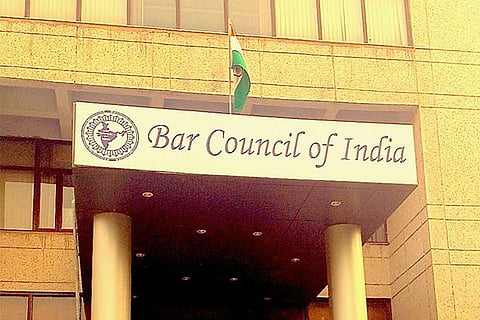

NEW DELHI: The Bar Council of India (BCI) should make it mandatory for every lawyer to appear at least in one pro bono work in a year to enable him to secure any relief fund from All India/State Bar Council, a Parliamentary Committee said on Wednesday.
Tabling its 143rd report - "Review of the working of Legal Aid under the Legal Services Authorities Act, 1987" to both the Houses of Parliament, the Department-related Parliamentary Standing Committee on Personnel, Public Grievances, Law and Justice in its report said that in each district court, high courts and in Supreme Court, the advocates or bar association can involve advocates in pro bono works by rotation and the association can monitor the same.
"The Committee is also of the view that designated senior advocates in all High Courts/Supreme Court may come together to form a panel for doing pro bono works and undertake such works," said the parliamentary panel, chaired by Rajya Sabha member Sushil Kumar Modi.
The panel suggested that courts can encourage advocates by giving them merit certificates based upon their contributions to the pro bono works done by them and such merit certificates could be utilised while assessing their individual merits.
“The pro bono work done by a lawyer may be taken into consideration for assessing his/her merit when they apply for any judicial posts, law officers post including appointment of High Court Judges and Supreme Court Judges, consideration of designation of senior advocates," it said.
It also recommended the National Legal Services Authority (NALSA) compensate lawyers adequately, so that they are able to sustain themselves and remain motivated in their job, adding that a robust system of monitoring the efficacy and accountability of legal aid services provided to the beneficiaries may also be put in place.
The parliamentary committee said that the Legal Aid Defence Counsel Scheme (LADCS) – which engages full-time experienced lawyers to exclusively devote their effort to provide legal aid, assistance and representation to the beneficiaries in criminal matters – is a paradigm shift in the manner in which the legal aid is provided in the country and will improve the quality of legal aid to the beneficiary.